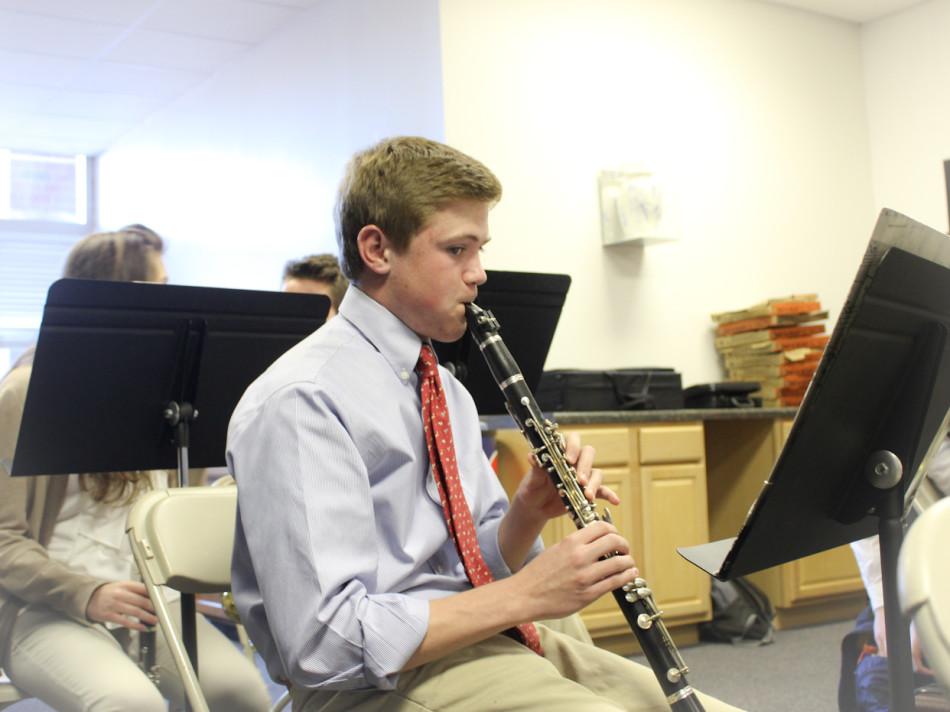The Beat: Benefits of Music
Whether it is the radio playing during the car ride to school or a favorite warm-up playlist right before the big game, music plays a role in the life of every high schooler. For the CCES band and orchestra members, music is more than just a melody in the background– it is the combination of each musician’s talents and tireless hours of practice all coming together to form a harmonious masterpiece. For all musically active students, music is more of an art rather than a form of entertainment, and it provides a variety of benefits, such as improved test scores and increased self-confidence.
According to a study by Christopher Johnson, professor of music education at the University of Kansas, students from schools with strong music programs scored 20-22% higher in English and math than students from schools with weaker music programs. Further research proves that musically trained students perform better on tests because they are able to recall more information from memory. Since musicians have to memorize dozens of songs and compositions, it is logical that they will develop advanced memorization skills.
The same results are present among the musicians at CCES. Over 80% of the students in the school band were on the honor roll last semester. Even though there is no evidence that these students’ grades are a result of participating in a musical activity, it seems unlikely that their musical involvement and academic achievement are unrelated. For example, band member Worth Gentry plays both the piano and the saxophone, instruments which require memorizing sheet music. He comments that he is “pretty good at memorizing school notes in a short period of time” and later adds that his many years of memorizing sheet music has probably trained him to be efficient in studying for tests.
Being involved with music, such as playing an instrument or singing in a choir, also improves attitude and raises self-esteem. Students who take on the extra challenge of doing a musical activity will feel like they have a value and responsibility in their lives. Andrew Zhang, a piano-playing sophomore at Christ Church, says that having a strict piano instructor since first grade has taught him discipline and the importance of practicing habitually.
Practicing an instrument daily also teaches students the importance of hard work and time management. Just as athletes need to condition and practice year round, musicians have to constantly practice hard pieces. According to the band members at CCES, a normal week consists of 4-6 hours of practice in class and at home. Although performing in front of a live audience is a daunting task, students agree that practicing each day helps prepare them mentally. All musicians and performers can agree that the more practice put into a performance, the less nervous they will be. The experience of performing on stage can also prepare students for school presentations, such as the Sophomore Project or Senior Thesis, which require students to speak in front of an audience. By playing instruments for live audiences, students gradually become more comfortable with audiences and therefore become more comfortable with public speaking.
Overall, musical involvement, such as playing an instrument or singing in a choir, provides academic as well as behavioral benefits. For example, studying sheet music and memorizing songs trains the brain to process and store verbal information, which helps students score high on lecture-based tests. The extra work that comes along with playing an instrument also teaches students valuable life skills, such as time management and responsibility. Most importantly, music provides an outlet for students to express their creativity. Being involved with the school in general helps students identify themselves and become well-rounded individuals. Therefore it is important to take advantage of the many opportunities and activities in school because the benefits of school involvement are endless.











